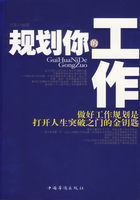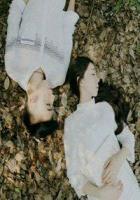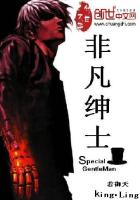Lights and Shadows
The first shadow that fell upon me in my new home was caused by the return of my parents to New Orleans. Their visit was cut short by business which required my father's presence in Natchez, where he was establishing a branch of the bankinghouse. When they had gone, a sense of loneliness such as I had never dreamed of filled my young breast. I crept away to the stable, and, throwing my arms about Gypsy's neck, sobbed aloud. She too had come from the sunny South, and was now a stranger in a strange land.
The little mare seemed to realize our situation, and gave me all the sympathy I could ask, repeatedly rubbing her soft nose over my face and lapping up my salt tears with evident relish.
When night came, I felt still more lonesome. My grandfather sat in his arm-chair the greater part of the evening, reading the Rivermouth Bamacle, the local newspaper. There was no gas in those days, and the Captain read by the aid of a small block-tin lamp, which he held in one hand. I observed that he had a habit of dropping off into a doze every three or four minutes, and I forgot my homesickness at intervals in watching him. Two or three times, to my vast amusement, he scorched the edges of the newspaper with the wick of the lamp; and at about half past eight o'clock I had the satisfactions am sorry to confess it was a satisfaction-of seeing the Rivermouth Barnacle in flames.
My grandfather leisurely extinguished the fire with his hands, and Miss Abigail, who sat near a low table, knitting by the light of an astral lamp, did not even look up. She was quite used to this catastrophe.
There was little or no conversation during the evening. In fact, I do not remember that anyone spoke at all, excepting once, when the Captain remarked, in a meditative manner, that my parents "must have reached New York by this time"; at which supposition I nearly strangled myself in attempting to intercept a sob.
The monotonous "click click" of Miss Abigail's needles made me nervous after a while, and finally drove me out of the sitting-room into the kitchen, where Kitty caused me to laugh by saying Miss Abigail thought that what I needed was "a good dose of hot-drops," a remedy she was forever ready to administer in all emergencies. If a boy broke his leg, or lost his mother, I believe Miss Abigail would have given him hot-drops.
Kitty laid herself out to be entertaining. She told me several funny Irish stories, and described some of the odd people living in the town; but, in the midst of her comicalities, the tears would involuntarily ooze out of my eyes, though I was not a lad much addicted to weeping. Then Kitty would put her arms around me, and tell me not to mind it-that it wasn't as if I had been left alone in a foreign land with no one to care for me, like a poor girl whom she had once known. I brightened up before long, and told Kitty all about the Typhoon and the old seaman, whose name I tried in vain to recall, and was obliged to fall back on plain Sailor Ben.
I was glad when ten o'clock came, the bedtime for young folks, and old folks too, at the Nutter House. Alone in the hallchamber I had my cry out, once for all, moistening the pillow to such an extent that I was obliged to turn it over to find a dry spot to go to sleep on.
My grandfather wisely concluded to put me to school at once. If I had been permitted to go mooning about the house and stables, I should have kept my discontent alive for months. The next morning, accordingly, he took me by the hand, and we set forth for the academy, which was located at the farther end of the town.
The Temple School was a two-story brick building, standing in the centre of a great square piece of land, surrounded by a high picket fence. There were three or four sickly trees, but no grass, in this enclosure, which had been worn smooth and hard by the tread of multitudinous feet. I noticed here and there small holes scooped in the ground, indicating that it was the season for marbles. A better playground for baseball couldn't have been devised.
On reaching the schoolhouse door, the Captain inquired for Mr. Grimshaw. The boy who answered our knock ushered us into a side-room, and in a few minutes-during which my eye took in forty-two caps hung on forty-two wooden pegs-Mr. Grimshaw made his appearance. He was a slender man, with white, fragile hands, and eyes that glanced half a dozen different ways at once-a habit probably acquired from watching the boys.
After a brief consultation, my grandfather patted me on the head and left me in charge of this gentleman, who seated himself in front of me and proceeded to sound the depth, or, more properly speaking, the shallowness, of my attainments. I suspect my historical information rather startled him.
I recollect I gave him to understand that Richard III was the last king of England.
This ordeal over, Mr. Grimshaw rose and bade me follow him. A door opened, and I stood in the blaze of forty-two pairs of upturned eyes. I was a cool hand for my age, but I lacked the boldness to face this battery without wincing. In a sort of dazed way I stumbled after Mr. Grimshaw down a narrow aisle between two rows of desks, and shyly took the seat pointed out to me.
The faint buzz that had floated over the school-room at our entrance died away, and the interrupted lessons were resumed. By degrees I recovered my coolness, and ventured to look around me.
The owners of the forty-two caps were seated at small green desks like the one assigned to me. The desks were arranged in six rows, with spaces between just wide enough to prevent the boys' whispering. A blackboard set into the wall extended clear across the end of the room; on a raised platform near the door stood the master's table; and directly in front of this was a recitation-bench capable of seating fifteen or twenty pupils. A pair of globes, tattooed with dragons and winged horses, occupied a shelf between two windows, which were so high from the floor that nothing but a giraffe could have looked out of them.















